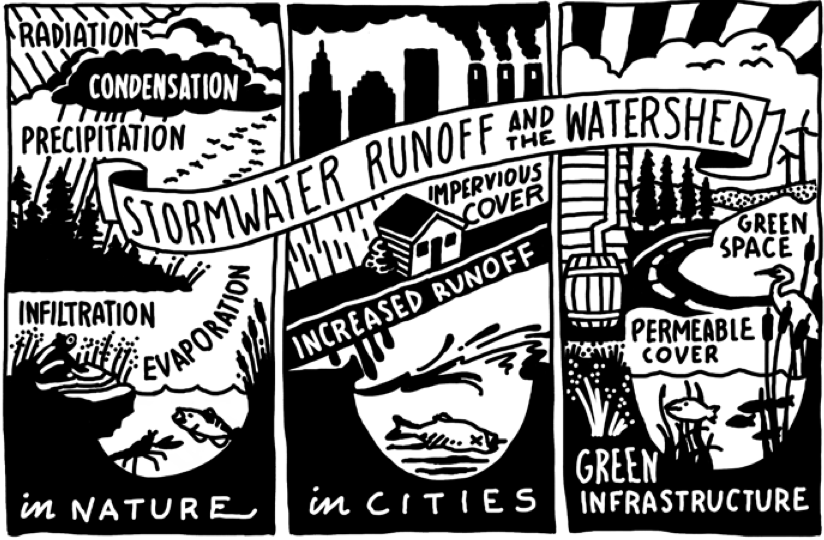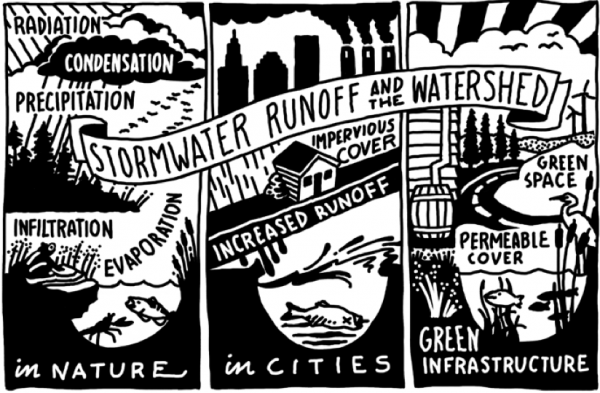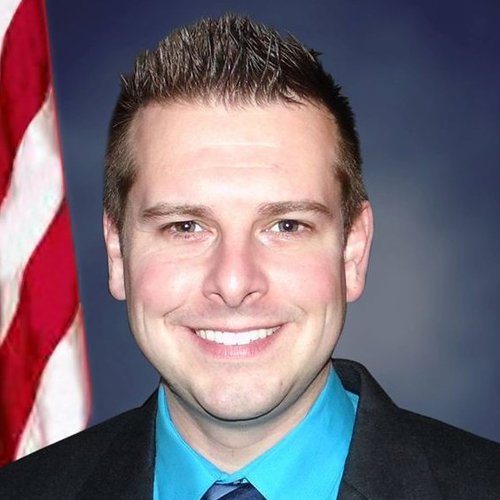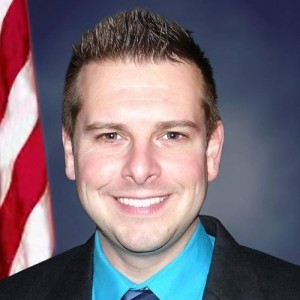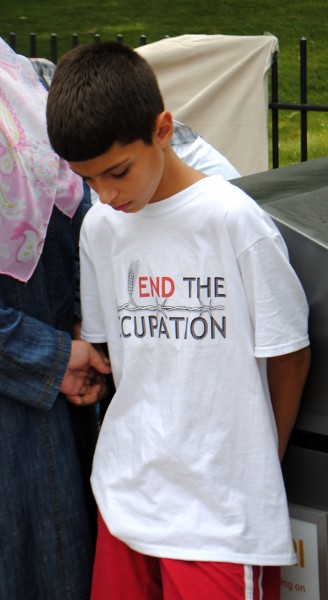 Last Saturday afternoon I attended a “” rally in downtown Providence and on the following Wednesday evening I attended an “Emergency Solidarity Rally” for Israel at the Jewish Community Center on the East Side of Providence, near where I live. As one of the few people to have attended both events, I think my observations may be of some value.
Last Saturday afternoon I attended a “” rally in downtown Providence and on the following Wednesday evening I attended an “Emergency Solidarity Rally” for Israel at the Jewish Community Center on the East Side of Providence, near where I live. As one of the few people to have attended both events, I think my observations may be of some value.
It would be easy, and deceiving, to talk about the similarities between the two events. I could talk about how both sides want peace, how both sides have families and friends in very real danger and how both the Jewish and the Palestinian communities here in Rhode Island feel isolated and targeted.
It is more difficult, and I believe more instructive, to contrast the two rallies. How do the differences in venue, political support and money affect public perception of the current conflict? How is the reaction to the conflict shaping communities here in Rhode Island?
I will admit upfront that my sympathies almost always align with the oppressed. I believe strongly in human rights. I think Israel and Palestine must start working together towards a two state solution and a lasting peace. Israel must stop the building and begin the deconstruction of illegal settlements. I think the United Nations Rights Council is wise to investigate Israel for war crimes. As the occupying military power, it is Israel’s responsibility to defend the lives of Gazan civilians, a responsibility Israel has not only repeatedly failed to uphold, but seems to flaunt as unimportant.
***
 Burnside Park in downtown Providence is located between City Hall and the Federal Building, next to Kennedy Plaza. It was here that Occupy Providence made camp in 2012, and I saw several members of Occupy at the “Stand with Gaza” rally. I parked a short distance away, and noticed two young Muslim women dressed in brightly colored hijabs heading the same direction I was. As we waited for the light to change for the crosswalk, a man began to mutter something at the women. I didn’t quite hear what he said but it was clear that he did not like the fact that two Muslim women were walking through Providence. The man oozed prejudice and hate.
Burnside Park in downtown Providence is located between City Hall and the Federal Building, next to Kennedy Plaza. It was here that Occupy Providence made camp in 2012, and I saw several members of Occupy at the “Stand with Gaza” rally. I parked a short distance away, and noticed two young Muslim women dressed in brightly colored hijabs heading the same direction I was. As we waited for the light to change for the crosswalk, a man began to mutter something at the women. I didn’t quite hear what he said but it was clear that he did not like the fact that two Muslim women were walking through Providence. The man oozed prejudice and hate.
The light changed, and the women walked away from the man and towards the rally, pretending not to hear him. Here was an example of the prejudice Arab and Muslim people experience in our country every day, the kind of prejudice I never face. It galls me that such a thing could happen in Rhode Island, where religious freedom was first enshrined into law. The women seem unaffected, but I silently seethed.
At the corner of Burnside Park the rally organizers were handing out signs to early arrivals when officers from the Providence Police Department arrived. About half the people assembled for the rally so far were persons of color or dressed in traditional ethnic or religious garments. It was not automatically assumed by those attending that the police were on hand to ensure the safety of the participants.
Rick, the friend who had invited me to cover this event, asked me if I thought the police would try to shut the rally down.
“Of course not,” I replied, like the knuckle-headed white guy with press credentials that I am, “It’s your First and Fourth Amendment right to peaceably assemble and protest.”
Rick did not seem so sure, so I held up my camera and said, “I have my camera. They won’t do anything on camera.”
Later, Rick told me that he had never been at a protest rally where it had occurred to him that the police were there for the protection of the participants. Rick does not see the First and Fourth Amendments as a guarantee of rights for people like him.
The Providence Police did not shut down the protest or interfere, but I did feel as though the police were more interested in monitoring the behavior of the rally participants than in protecting the participants from those who might wish them harm. This rally was outside, on a street corner near a public park, with cars, bikes and pedestrians passing by. Prejudice, as I had just witnessed, is ubiquitous. It takes courage for an American Muslim or Arab to publicly support Gaza. This is not a politically popular position.
Four days later, at the Emergency Solidarity Rally for Israel, the police were unquestionably there to protect the attendees of the rally from outsiders who might wish them harm. The police were positioned inside and outside the Jewish Community Center, located on the East Side of Providence, the wealthiest area of the city. I was told by an officer to have my identification ready or I would not be allowed into the auditorium. Security and safety were very important, and this was reflected in the attendance. More than 400 people crowded into the safety of the Community Center auditorium, three times the number who came out in support of Palestine on Saturday.
***
 The most moving part of the Stand with Palestine Rally was the reading of the names of those killed in the war. For over half an hour speakers read the names of the 336 killed in the war so far. As the reading of the names became too emotionally taxing, the list would be handed off to another speaker. The ages of those killed ranged from one to 80 years. Way too many of the dead were children. It was exhausting. Overwhelming.
The most moving part of the Stand with Palestine Rally was the reading of the names of those killed in the war. For over half an hour speakers read the names of the 336 killed in the war so far. As the reading of the names became too emotionally taxing, the list would be handed off to another speaker. The ages of those killed ranged from one to 80 years. Way too many of the dead were children. It was exhausting. Overwhelming.
The last three names read were of the three Israelis who had lost their lives in the conflict. Those in attendance were ask to keep all those killed in their thoughts or prayers.
By the time of the Emergency Solidarity rally four days later, the number of Palestinian dead had more than tripled and the Israeli Defense Forces (IDF) had launched a ground invasion. At the Emergency Solidarity rally, Rabbi Elan Babchuck, with all due solemnity, read the names of the now twenty-seven Israelis killed in Gaza so far. It took under five minutes. As I write this I have just heard a news report estimate that 40 Israeli soldiers and three Israeli citizens have died in this confrontation. The Palestinian dead are approaching 800 in number. By the time you read this the number will be higher still, but you can rest assured that the dead Palestinian children will far outnumber the dead Israeli soldiers.
The death of young Israeli soldiers is a tragedy. No life should be cut so short. In the audience gathered inside the Community Center were parents of men and women who are in the IDF. Is there a devil’s calculus for the loss of children? Is there a way to measure the loss of a Palestinian child versus the loss of an Israeli soldier? Is there a ratio of death that seems proper and fair? What is the calculation I should use to value my own son or daughter?
***
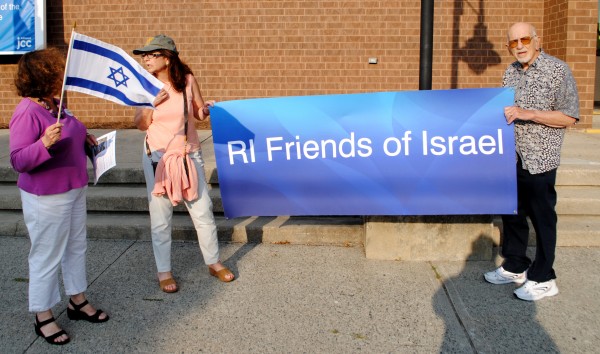 A well-planned political rally always has a political ask. The protesters at Burnside Park charged that Israel is an apartheid state, and that the citizens of Gaza live in a virtual prison, without hope for a future. Those organizing for Palestine called upon Rhode Island’s congressional delegation to curtail their support for Israel until the Israeli government lifts sanctions and starts negotiating in good faith with Palestine. In today’s political climate though, no matter how much mail and email Rhode Island’s congressional delegation receive, it unlikely that any of them will change their position on Israel. Representatives Cicilline and Langevin, and Senators Reed and Whitehouse, have all been vocal in their support of Israel, and conventional wisdom is that it is political suicide to support Palestine over Israel.
A well-planned political rally always has a political ask. The protesters at Burnside Park charged that Israel is an apartheid state, and that the citizens of Gaza live in a virtual prison, without hope for a future. Those organizing for Palestine called upon Rhode Island’s congressional delegation to curtail their support for Israel until the Israeli government lifts sanctions and starts negotiating in good faith with Palestine. In today’s political climate though, no matter how much mail and email Rhode Island’s congressional delegation receive, it unlikely that any of them will change their position on Israel. Representatives Cicilline and Langevin, and Senators Reed and Whitehouse, have all been vocal in their support of Israel, and conventional wisdom is that it is political suicide to support Palestine over Israel.
At the Emergency Solidarity rally, Marty Cooper, director of Community Relations for the Jewish Alliance of Greater Rhode Island, asked those in attendance to send letters and emails thanking the representatives and senators for their continued support of Israel. He asked that those in attendance write letters to the Providence Journal, praising the paper’s recent inclusion of an editorial and an op-ed in support of Israel. In essence, Cooper asked that those in attendance celebrate the political and journalistic support Israel continues to receive.
Supporting Israel is a smart campaign move. That’s why Rhode Island Attorney General Peter Kilmartin attended Wednesday night’s rally, along with three Democratic candidates in the race for mayor of Providence, including City Council President Michael Solomon, Jorge Elorza and Brett Smiley. Ken Block, who is seeking the Republican nomination for Governor, played the crowd, shaking hands. I noticed progressive State Senators Josh Miller and Gayle Goldin in the crowd. There may well have been other politicians that I missed.
There were no candidates glad-handing the crowd at the Stand with Gaza rally on Saturday.
***
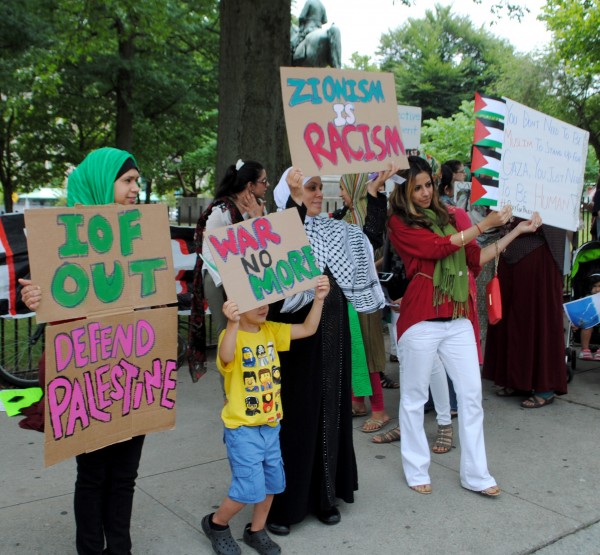 At Saturday’s rally I saw a Muslim woman holding a red, white and blue sign that read, ZIONISM IS RACISM. On Wednesday night I saw a woman waving an Israeli flag and wearing a pin that stated, simply, I AM A ZIONIST.
At Saturday’s rally I saw a Muslim woman holding a red, white and blue sign that read, ZIONISM IS RACISM. On Wednesday night I saw a woman waving an Israeli flag and wearing a pin that stated, simply, I AM A ZIONIST.
To the Palestinian woman with the sign, Zionism represents the theft of her homeland and the annihilation of her people and culture. To the Jewish woman wearing her pin Zionism is the culmination of the efforts of generations of people working towards a return to the Jewish homeland. The entirety of that promised homeland, however, can only be reclaimed if the Palestinians vacate it or accept their lot as second-class citizens within it, something I suspect most Palestinians see as tantamount to genocide.
Though there were people at the Emergency Solidarity Rally comfortable with identifying as Zionists, positioning themselves with the more extreme right-wing politics of Israeli Prime Minister Benjamin Netanyahu’s government, there was no one at the pro-Palestinian rally identifying themselves as being aligned with the more extreme elements of Palestine, like Hamas.
Those attending the Stand with Gaza rally were united in their calls for peace, for an end to the violence and for an end to the occupation of Gaza. Together they asked for support, understanding, effective humanitarian aid and human rights. They wanted their children to stop dying.
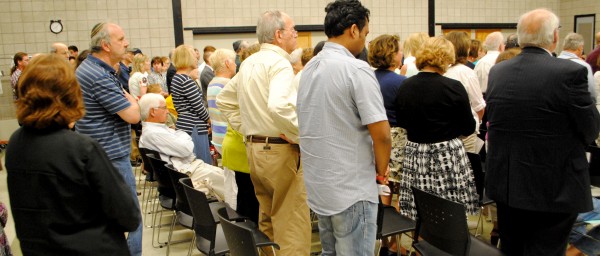 Those at the pro-Israel rally were less united. They also wanted peace and an end to the violence. But as a group they were divided on the occupation of Gaza. They were divided on whether or not the situation in Gaza amounts to self-defense, occupation, apartheid or genocide.
Those at the pro-Israel rally were less united. They also wanted peace and an end to the violence. But as a group they were divided on the occupation of Gaza. They were divided on whether or not the situation in Gaza amounts to self-defense, occupation, apartheid or genocide.
During the solidarity rally Rabbi Michelle Dardashti, a chaplain at Brown University, read a poem to those in attendance that explored the suffering of first the Israeli and then the Gazan people. Dardashti said, “It’s easier for us to hear the first part of [the poem] about our people suffering, and it’s very scary and hard for us to look at the images of the Gazans crying and bleeding and suffering. We do have a right and an obligation to defend ourselves, and we also have an obligation, I believe, to defend our hearts from hardening.”
In response, a few members of the audience, their hearts hardened, cried “No!” as in “No, I will not allow myself to feel empathy for those who have lost children on the other side of this conflict.”
The term “Emergency Solidarity Rally” takes on a new meaning in this context. The death of Gazan children is a moral outrage that threatens Israeli solidarity. As right wing politicians in Israel utilize ever more hyperbolic rhetoric to defend their attack on Gaza, reasonable people are given pause. What is the ultimate cost, in terms of dead Gazans, for a free and peaceful Israel? Is any amount of death, up to and including genocide, worth paying?
Even as Palestinians find greater solidarity under the duress of being occupied, Israel finds itself fracturing under the moral stress of being occupiers. Such is the difference, it seems to me, between “Standing with Gaza” and the need for “Emergency Solidarity.”
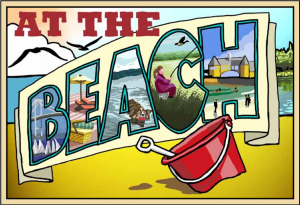

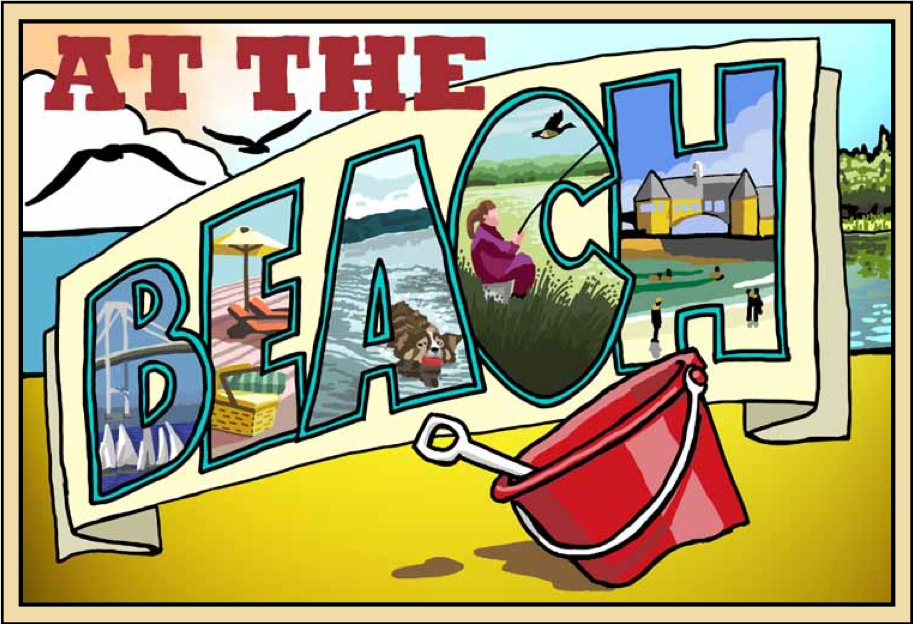
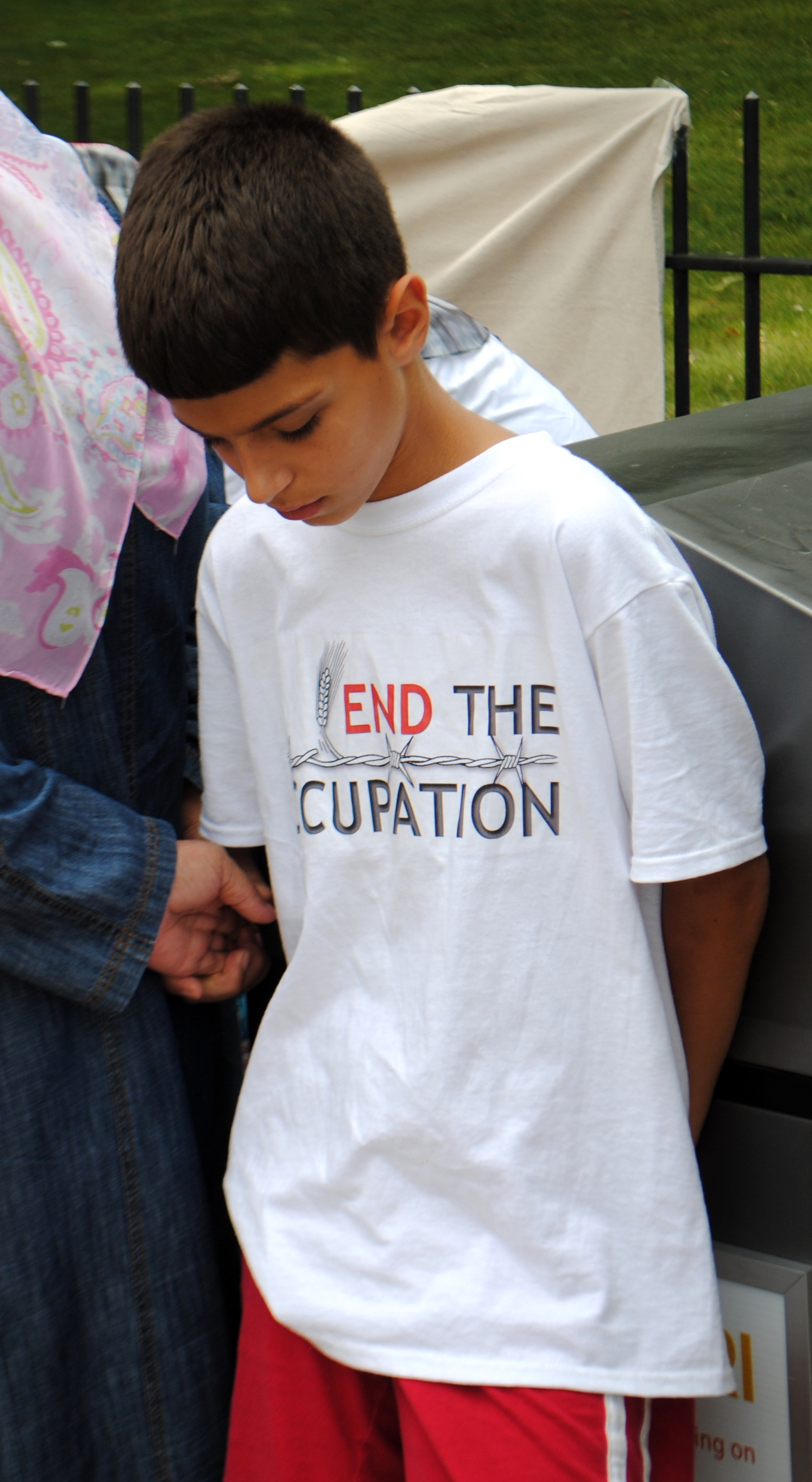
 Last Saturday afternoon I attended a “” rally in downtown Providence and on the following Wednesday evening I attended an “
Last Saturday afternoon I attended a “” rally in downtown Providence and on the following Wednesday evening I attended an “ Burnside Park in downtown Providence is located between City Hall and the Federal Building, next to Kennedy Plaza. It was here that Occupy Providence made camp in 2012, and I saw several members of Occupy at the “Stand with Gaza” rally. I parked a short distance away, and noticed two young Muslim women dressed in brightly colored hijabs heading the same direction I was. As we waited for the light to change for the crosswalk, a man began to mutter something at the women. I didn’t quite hear what he said but it was clear that he did not like the fact that two Muslim women were walking through Providence. The man oozed prejudice and hate.
Burnside Park in downtown Providence is located between City Hall and the Federal Building, next to Kennedy Plaza. It was here that Occupy Providence made camp in 2012, and I saw several members of Occupy at the “Stand with Gaza” rally. I parked a short distance away, and noticed two young Muslim women dressed in brightly colored hijabs heading the same direction I was. As we waited for the light to change for the crosswalk, a man began to mutter something at the women. I didn’t quite hear what he said but it was clear that he did not like the fact that two Muslim women were walking through Providence. The man oozed prejudice and hate. The most moving part of the Stand with Palestine Rally was the reading of the names of those killed in the war. For over half an hour speakers read the names of the 336 killed in the war so far. As the reading of the names became too emotionally taxing, the list would be handed off to another speaker. The ages of those killed ranged from one to 80 years. Way too many of the dead were children. It was exhausting. Overwhelming.
The most moving part of the Stand with Palestine Rally was the reading of the names of those killed in the war. For over half an hour speakers read the names of the 336 killed in the war so far. As the reading of the names became too emotionally taxing, the list would be handed off to another speaker. The ages of those killed ranged from one to 80 years. Way too many of the dead were children. It was exhausting. Overwhelming. A well-planned political rally always has a political ask. The protesters at Burnside Park charged that Israel is an apartheid state, and that the citizens of Gaza live in a virtual prison, without hope for a future. Those organizing for Palestine called upon Rhode Island’s congressional delegation to curtail their support for Israel until the Israeli government lifts sanctions and starts negotiating in good faith with Palestine. In today’s political climate though, no matter how much mail and email Rhode Island’s congressional delegation receive, it unlikely that any of them will change their position on Israel. Representatives Cicilline and Langevin, and Senators Reed and Whitehouse, have all been vocal in their support of Israel, and conventional wisdom is that it is political suicide to support Palestine over Israel.
A well-planned political rally always has a political ask. The protesters at Burnside Park charged that Israel is an apartheid state, and that the citizens of Gaza live in a virtual prison, without hope for a future. Those organizing for Palestine called upon Rhode Island’s congressional delegation to curtail their support for Israel until the Israeli government lifts sanctions and starts negotiating in good faith with Palestine. In today’s political climate though, no matter how much mail and email Rhode Island’s congressional delegation receive, it unlikely that any of them will change their position on Israel. Representatives Cicilline and Langevin, and Senators Reed and Whitehouse, have all been vocal in their support of Israel, and conventional wisdom is that it is political suicide to support Palestine over Israel. At Saturday’s rally I saw a Muslim woman holding a red, white and blue sign that read, ZIONISM IS RACISM. On Wednesday night I saw a woman waving an Israeli flag and wearing a pin that stated, simply, I AM A ZIONIST.
At Saturday’s rally I saw a Muslim woman holding a red, white and blue sign that read, ZIONISM IS RACISM. On Wednesday night I saw a woman waving an Israeli flag and wearing a pin that stated, simply, I AM A ZIONIST. Those at the pro-Israel rally were less united. They also wanted peace and an end to the violence. But as a group they were divided on the occupation of Gaza. They were divided on whether or not the situation in Gaza amounts to self-defense, occupation, apartheid or genocide.
Those at the pro-Israel rally were less united. They also wanted peace and an end to the violence. But as a group they were divided on the occupation of Gaza. They were divided on whether or not the situation in Gaza amounts to self-defense, occupation, apartheid or genocide.